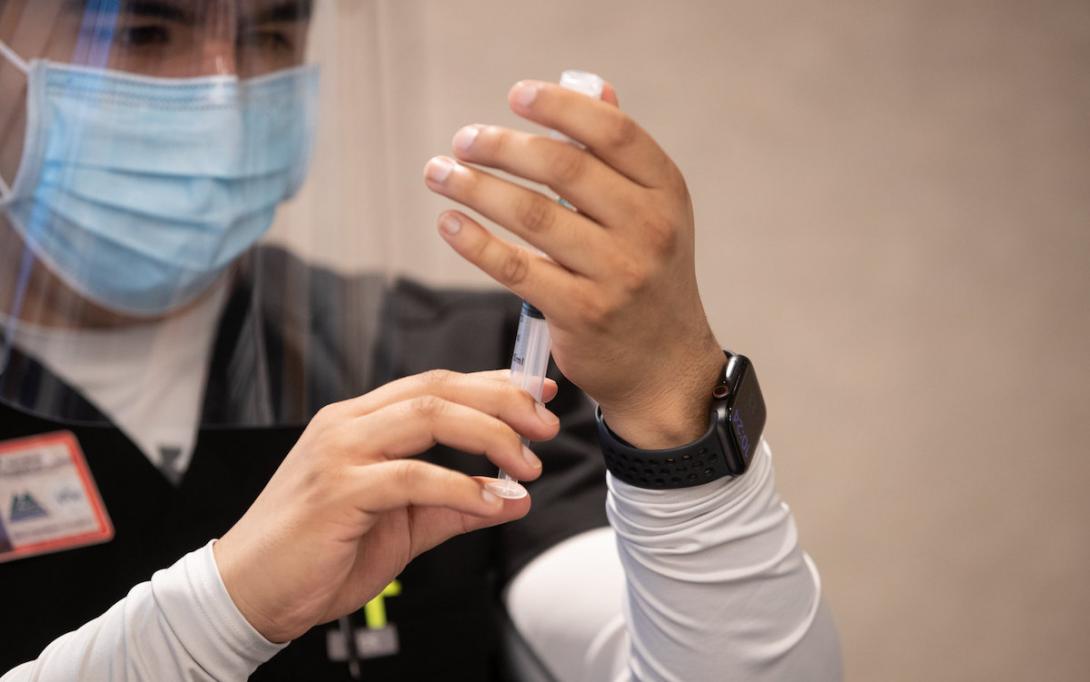
Republican voters and Black people remain the most hesitant to get the COVID-19 vaccination across the nation, according to a new Portland State University study.
The study analyzed geographic trends through examining county-level data, including vaccination rates, demographics and voting patterns in the 2020 election. The findings also take into account regional factors like broadband internet access and the availability of health care facilities in rural and frontier counties, such as those in Oregon.
A key takeaway: To run a successful vaccination campaign, health officials should employ a regional approach rather than a one-size-fits-all model.
Even as COVID-19 fades from the forefront, vaccination efforts in Oregon have lagged in some regions. Lake County in rural southern Oregon has the lowest vaccination rate: 48.3% of adults received at least one dose, according to Oregon Health Authority data released this week. Six other rural Oregon counties have rates of less than 60%. Statewide, in October 2021, 80% of Oregonians had received at least one dose, the rate that state public health officials said was needed.
Oregon’s statewide vaccination rate compares well to other states, but “that doesn’t mean that we do not have room for improvement,” said Heejun Chang, professor of geography at PSU.
Arun Pallathadka, a doctoral student in PSU’s Earth, Environment and Society program, and Chang conducted a spatial analysis of vaccination data, with an eye on social, ecological and technological factors that influence vaccine rates. They defined vaccine hesitancy as “a delay in accepting or refusing vaccinations despite vaccine services being available.”
Findings of the study include:
- Vaccine hesitancy is prevalent in many Republican counties in the U.S., including in the Mountain States, Southwest and the South. Other past research suggests misinformation, including from Republican leadership, has played a role. But it’s not universal. Republican counties in the Northeast, including New Jersey and New England, and states such as Maine and Vermont, have higher vaccination rates, possibly because moderate Republicans approach the issue differently.
- Vaccine hesitancy is strong among Black people, including in the Pacific Northwest, South, Mountain States and Southwest. The authors of the study cited past research into potential factors that include poor access to health care, racial inequality, misinformation and medical racism.
- Regions with people who are more highly educated are more likely to get vaccinated and this tends to be in urban areas.
- Populations with access to broadband internet and regions with at least one health care facility per 10,000 people have better vaccination rates.
The authors also said distrust toward government likely contributed to vaccine hesitancy regardless of individuals’ race or political affiliation.
Based on the study’s focus on “spatial analysis” of geographic differences and the location of services, Chang said community organizations and outreach can help states like Oregon, where barriers in rural areas may include long distances from the nearest health care facility.
“Public health officials and policymakers need to recognize that space matters to COVID-19 vaccination efforts,” Pallathadka said, adding that policies “targeted toward significant local factors” are key.
The findings were published in Environmental Research: Health. Daikwon Han, an associate professor of epidemiology and biostatistics at Texas A&M, is also a co-author.
You can reach Ben Botkin at [email protected] or via Twitter @BenBotkin1.

